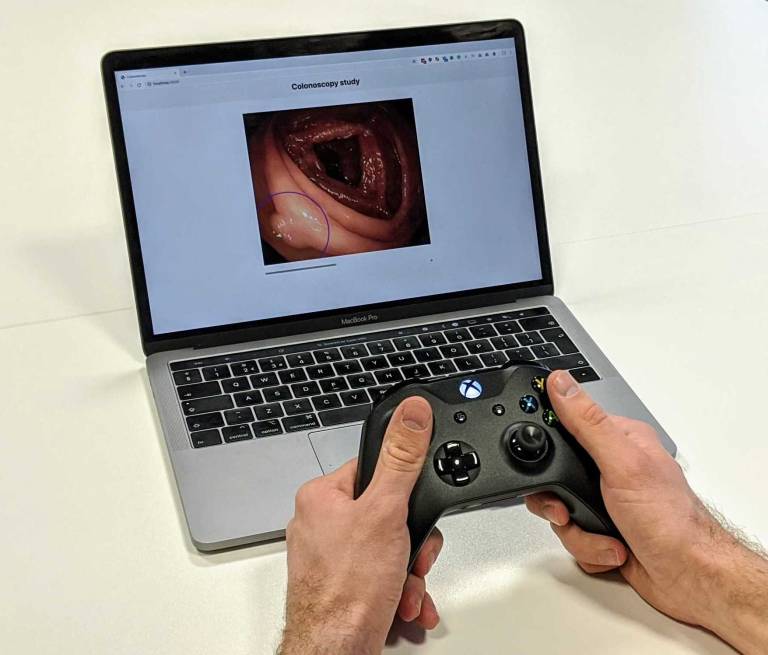The human factors group works with engineers, clinicians and (where possible) patients to ensure that products developed in WEISS are fit for purpose.

Advanced technologies don’t work if they can’t be used by the intended users. They should also give a positive user experience: for both clinicians and patients. The human factors group works with engineers, clinicians and (where possible) patients to ensure that products developed in WEISS are fit for purpose, and to advance research on incorporating human factors expertise in the design of future medical devices.
We are members of the UCL Interaction Centre (UCLIC) and Wellcome/EPSRC Centre for Interventional and Surgical Sciences (WEISS). Our research is multidisciplinary with a focus on the users requirements for new advances in colorectal examination and liver cancer surgery.
Our group has a diverse expertise in lecturing, tutoring, project supervising, organising and running workshops, prototype development, and studies that focus on ensuring that the users’ needs are properly meet to provide positive user experience. This is achieved by conducting co-design studies that allow us to identify the needs of the user and work with them to provide technologies and interfaces that assist them in their workplace.
Research and collaboration highlights
Since joining WEISS we have worked with the team developing augmented reality visualisations to help clinicians locate (and avoid) major blood vessels during keyhole liver surgery. When a new technology is introduced, people need to change their working practices; the role of Human Factors is to make sure that those changes are for the better.
We have also investigated pain management within critical care and designed visualisation dashboards to improve the ways information is presented to clinical teams. Two sets of dashboards have been proposed; the first is designed to assist nurses at the bedside to improve pain scoring and monitor patients’ pain levels, while the second is for the quality improvement team to identify pain management concerns across the entire ward. Inevitably, developments have been disrupted during the pandemic.
The largest study we are involved in is working with colonoscopists and engineers to evaluate the introduction of an Artificial Intelligence (AI) assisted polyp detection and classification system. Our research has focused on how to present the results of running the algorithm to clinicians during colonoscopy, how colonoscopists regard this technology, how it changes their work, and whether it can help improve polyp detection.
 Close
Close






